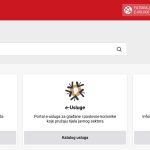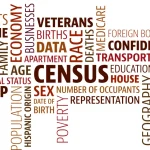As Poslovni Dnevnik writes, the very first Croatian 2021 e-Census started being filled in and completed by Croatia’s residents on Monday, it will continue that way until September the 26th. Most of those to have filled it in online reside in the City of Zagreb, and the least so far live in in Lika-Senj County. Slightly more than 320,000 residents of the country had self-registered through e-citizens by yesterday morning.
”We’re more than satisfied, approximately 100,000 new people are being registered online daily. Zagreb boasts the largest pool of those people and most people there have registered themselves, but other counties are also present to a satisfactory extent,” said Lidija Brković, CBS Director General, as a guest on the HRT show “Good Morning, Croatia/Dobro jutro, Hrvatska”.
Brkovic said that there was no system failure to speak of so far, but there were problems on Monday at around 13:00.
”New people could register themselves, but those who had already started filling it in online had problems for about 15 minutes in completing the questionnaire. We’re more than satisfied with things so far, we’ve had a lot of positive comments and it’s all very simple,” said Brkovic, adding that it takes 15 to 20 minutes to list a family of four.
It is enough that only one family member in the household has an e-Citizens credential and that they’rethe reference person. People can also list grandparents, but if they live in another household they must also have an e-Citizens credential.
The questionnaire has about 60 questions. If you don’t answer a question that is mandatory, you can’t go any further. When you’ve finished the Croatian 2021 e-Census, you will receive a verification code that you need to keep hold of until the second stage of the census when you hand it over to the enumerator to show that you have completed the census.
In the last three days, there have been about 8500 more people using the e-Citizens platform, which is also excellent.
”People shouldn’t worry about this data being connected to some other databases or registers, this is merely statistical data and it is all kept separate,” explained Bernard Grsic, State Secretary of the Central State Office for the Digital Development of Society.
Enumerators are set to go out into the field on September the 26th. The second phase of the census lasts until October the 27th with the possibility of an extension.
”If you aren’t home, they’ll leave a message for you to contact them and arrange a time when they can come. They’ll probably be able to come at any time during day. Everyone will get their census circles. The assumption is that people who work in the morning won’t be at home. Not all family members have to be at home, but a person who is in must have their OIBs because they can’t list them without it,” said Brkovic.
For more, make sure to check out our dedicated lifestyle section.











